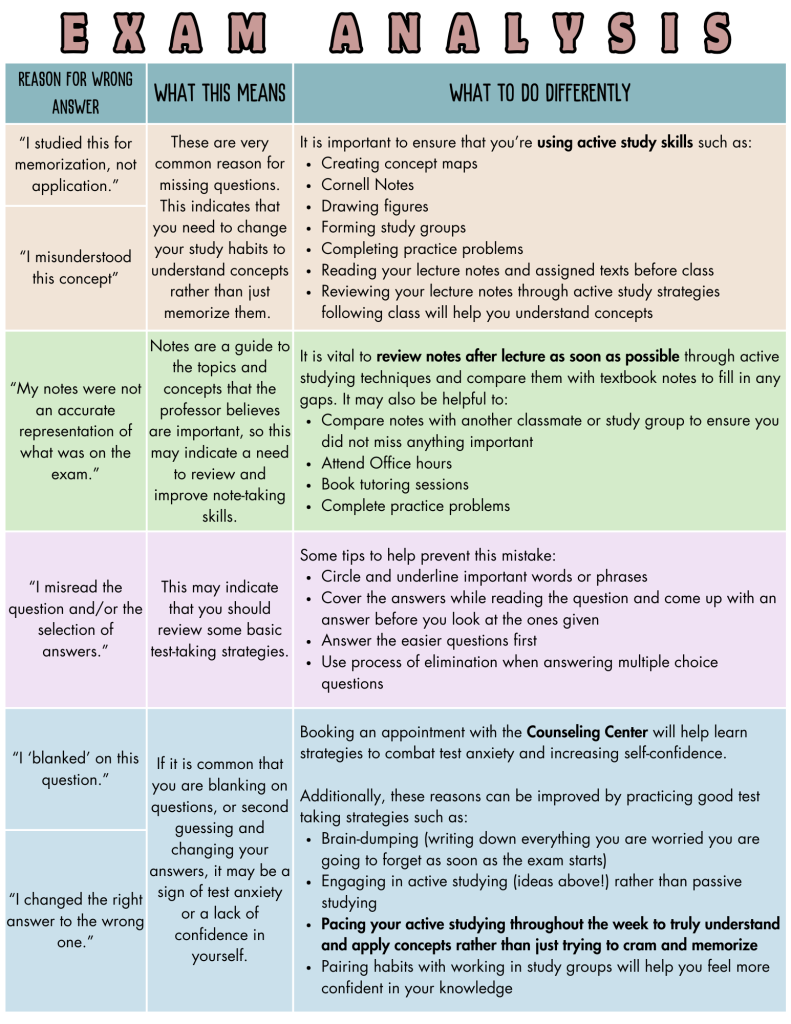After you take your exam, it is important that you do not just forget about it and move on. Here are two major reasons why:
- Courses and majors tend to build on themselves
- It will help you prepare for the next exam and the final
- You may need this information for future courses and your career
- Developing study and test taking strategies
- Identifying mistakes that you made can help you avoid those in the future
The Exam Analysis Tool helps you identify better strategies to improve your exam performance. Make sure you're honest with yourself or else it won't be helpful!

For more information on how to apply this tool to your exams, check out the videos below.
If you are having trouble applying different strategies to your work, make an appointment with an Academic Coach or learn more about active study strategies.
Download a copy of this tool to use on your exams.